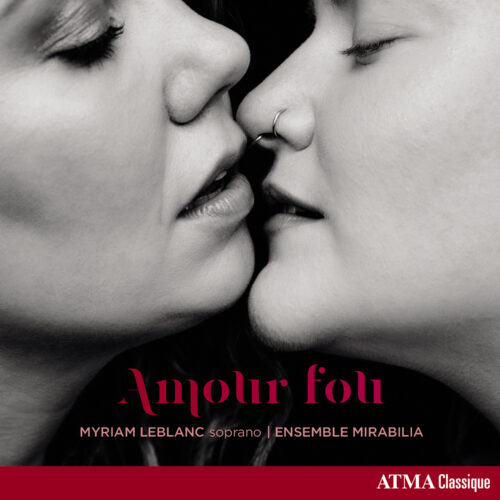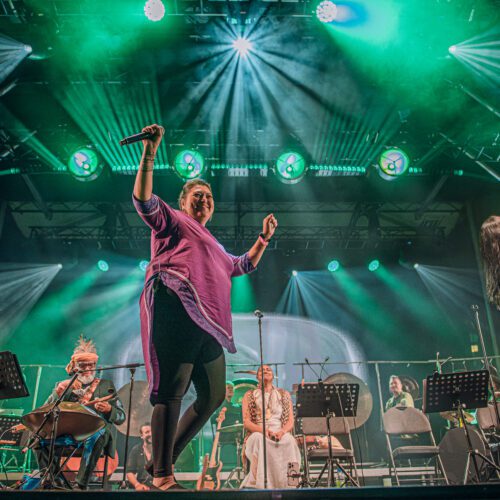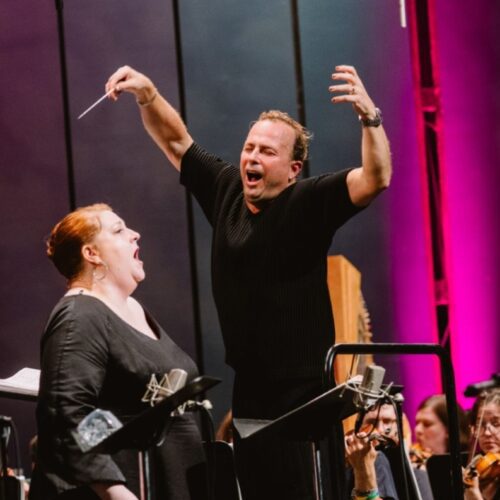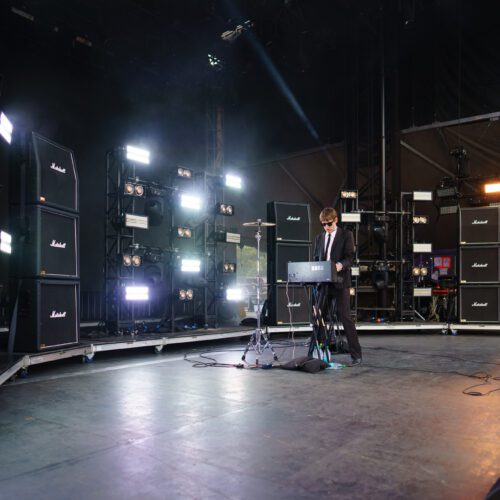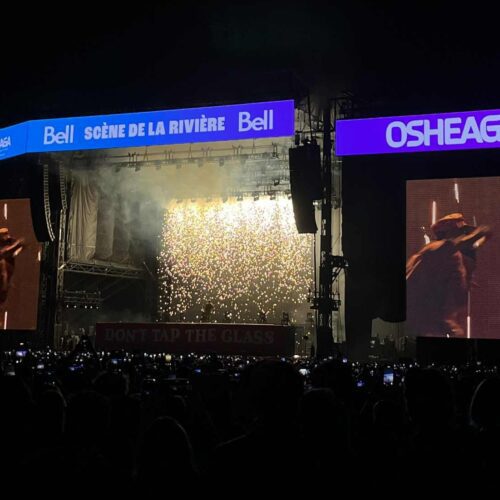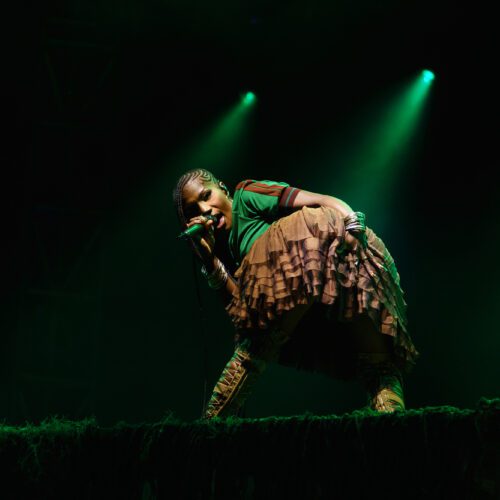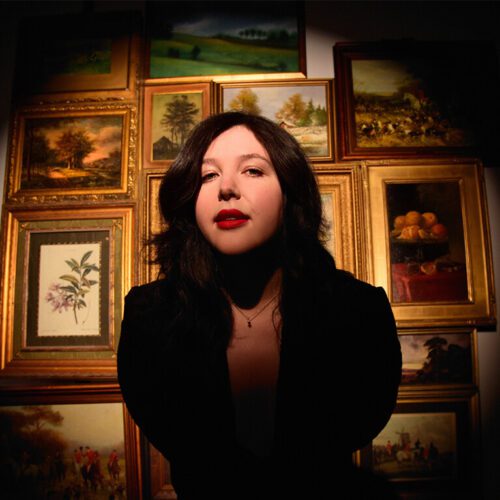Amour fou is an album full of refinement, taking us on a journey through over 800 years of music about love. In this long selection of vocal and instrumental works, Myriam Leblanc (soprano), Ensemble Mirabilia (Grégoire Jeay, flutes; Antoine Malette-Chénier, harps; Mélisande Corriveau, viola da gamba, pardessus de viole) and Ellen Torrie (soprano and baroque guitar) manage to describe love at its most complex. Whether it’s overflowing joy, painful separation or the discovery of budding feelings, each work is interpreted with delicacy and grace.
As the ensemble plays on period instruments, the soft, warm sound quality typical of early instruments is also present, which is entirely appropriate. The result is an intimate ambience, conducive to loving dialogue. We are surprised (positively!) to hear more contemporary songs, such as “Ne me quitte pas” (Jacques Brel) or “Dis, quand reviendras-tu?” (Barbara), also interpreted by these same instruments. At the opposite end of the spectrum from these songs is “Bele Doëtte,” an almost a cappella work dating from the 13th century. The interpretation is almost unsettling, especially as it closes the album.
Listening to this album, you can be sure of another dazzling performance from soprano Myriam Leblanc. Here too, her interpretations are all nuance, subtlety and control. On two tracks, she is joined in a duet by Ellen Torrie, whose voice blends perfectly with that of Myriam Leblanc. We would have appreciated more! The Mirabilia ensemble also stands out for its accompaniments, and we particularly appreciate the few instrumental-only tracks.
Amour fou is a non-chronological musical panorama, illustrating the timeless inspiration that is love, and it succeeds perfectly.
